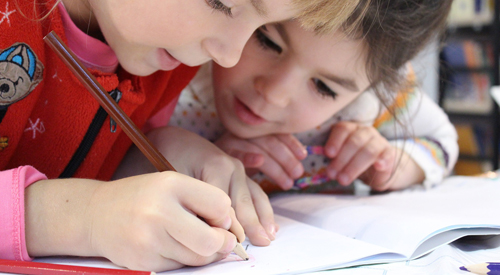Why education needs artificial intelligence

This is the second part of our interview with Sir Anthony Seldon (Dr.), a former headmaster, historian and a political biographer. He founded The Institute of Happiness at Cambridge University and is currently Vice Chancellor of Buckingham Univeristy. His book, The Fourth Education Revolution: Will Artificial Intelligence Liberate or Infantalise Humanity, covers the new education revolution that will be brought about by the use of Artificial Intelligence (AI).
In the first interview he looked at the history of education and the impact of AI. Here he looks at the problems with the Factory Model of education – this is most famously illustrated by a photograph of a classroom from the early 20th Century of children lined up behind desks in rows. It looks alarmingly similar to a photograph of most 21st Century classrooms.
The five problems the Factory Model never solved and the way AI will solve them:
1 Social mobility Social mobility in Britain is now declining. It is hard to get people to study physics, maths and languages from the areas of social deprivation. There is a disparity of teaching quality in rural, deprived areas versus urban areas.
AI: An AI machine for every single child that will bring education to the child, be attuned to that child by reading its face and knowing how to keep it on mission and so providing, an ‘Eton Education ‘ for all.
2 Rate of progress It is absurd to expect every child to go forward at the same pace as age does not equate to ‘stage of understanding’.
AI: Will keep with the child, will enable the child to progress independently with personalised learning and level specific teaching.
3 Retaining teachers In London today 50 per cent of teachers are dropping out after five years. This is due to administration overload and how exhausting the requirements of the job are. “The burden of administration for conscientious teachers really is crushing,” said Sir Anthony. “It made me weep when teachers said they were inspired by wanting to change lives, and this was not what they expected.”
AI: With AI teachers will be able to teach.
4 Narrow focus on just cognitive ability We have eight intelligences, the Factory Model is not capable of developing all those. People come of school with vast potentials under developed, for the rest of their life.
AI: Will provide multiple intelligence learning
5 Homogenisation not individuation “I am very troubled by the rise of unhappiness. On aggregate we are a much more affluent society. We have always been led to expect money matters more than anything but happiness levels are not rising with levels of income,” he said. “One in three young people coming up to 18 are reporting signs of anxiety, mental distress and depression. “We do know that our education system is not helping our young people learn how to live – with themselves, in families, with their bodies, at work, in communities. “We must ask our children would I sooner have 5A* or would I be better off learning to live with myself?”
AI: The system will be able to individuate the child and it will engage them like their computer games engage them.
Sir Anthony’s book lays out how AI can address the above issues, if used properly. Sir Anthony said, “All schools need to have plants and animals, and harvest some of their own energy because we are losing a sense of reality. “Identity is formed, and we are most real and human, in a relationship. Education establishment is being driven by the past and not acknowledging the future.”




.jpg)